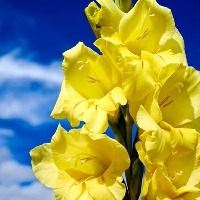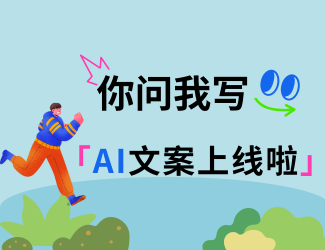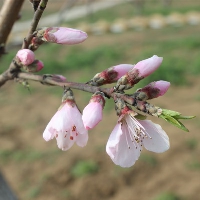可怜,老祖宗留下的东西
老祖宗给我们留下乌黑亮丽的秀发,却有人对此不满,硬生生地将头发染成五颜六色,显示自己多么新潮。说好听的是“时尚一族”,说难听点就是一群“假洋鬼子”。
our ancestors left us beautiful black hair, but some people were dissatisfied with it. they dyed their hair into colorful colors, showing how fashionable they were. it's the "fashion group" that sounds good. it's a group of "fake foreign devils" that's hard to hear.
老祖宗给我们留下了庙宇佛堂供后人求神拜佛,却有人灵机一动,在庙门口支上张桌子:入庙收费。老天爷,虽说现在是商品经济时代,难道连佛祖也准备下海经商了?
the old ancestor left us a temple and a buddhist hall for later generations to pray for the gods and worship the buddha. however, some people had an idea and set up a table at the gate of the temple: charge for entering the temple. god, although it's the era of commodity economy, are even buddhas ready to go into business?
更可气的是当人们拿自己头发开完刀,又借着佛祖的名义中饱私囊后却仍然不知满足,又将改革的矛头直指中国传统戏曲。
what's more exasperating is that when people finish cutting their hair and enrich their private pockets in the name of buddha, they still don't know how to satisfy them, and they point the reform at traditional chinese opera.
现在有人提出疑问:“传统戏曲非得传统演吗?”他们认为“现在生活节奏如此之快,已经没有多少观众有耐心闭着眼睛坐在那里,边听边跟着哼上好几个钟头了”。但是看戏嘛,本来就是去消遣的,要是赶着干什么急事儿,那么来看戏干什么?现在不也有许多年轻人去压马路,去喝咖啡,一逛、一喝就好几个钟头,这时候他们怎么不急了呢?所谓“生书熟戏”,为什么老戏唱了那么多年还有人听,不就是冲着那“闭着眼睛坐在那里边听边跟着哼”的劲头嘛?其实并不像有些人认为的那样“戏曲界的观念要有所转变了”,而是已有的观念实在荒唐。的确,观众的审美情趣在提高,选择的范围在扩大,他们完全有权利去看可看性极强的音乐剧或者在家里搜索电视频道看电视连继剧。但是难道因为这些原因就要把传统戏改成和音乐剧一样的玩意儿?观众喜好什么,就往传统戏里放什么,那请问“一批老观众”就喜欢老腔老调,你把传统戏都改成别的了,拿什么给这些人看?谁说戏曲的生存就一定要随时代的发展而发展呢?想来,流传至今的戏曲哪个不是传统剧目,那些胡编乱造的新编“戏曲”有哪些流传下来了?
now some people ask, "does traditional opera have to be performed?" they think that "now the pace of life is so fast that not many viewers have the patience to sit there with their eyes closed, listening and humming for hours.". but going to the theatre is for entertainment. if you are in a hurry to do something urgent, why do you come to the theatre? now, there are many young people who go to the streets and have coffee for hours. why are they not in a hurry? the so-called "raw books and familiar plays", why do people still listen to the old plays after they have sung for so many years? isn't it because of the momentum of "sitting there with your eyes closed and listening while humming"? in fact, it's not like some people think that "the concept of the opera industry will be changed", but the existing concept is really absurd. indeed, the audience's aesthetic taste is improving, and the scope of choice is expanding. they have full right to watch musicals with strong visibility or watch tv series on the home search tv channel. but is it because of these reasons that we need to change the traditional drama into the same thing as musical drama? what do the audience like and put in the traditional opera? a group of old audiences like the old tune. what do you show these people when you change the traditional opera into something else? who said that the survival of opera must develop with the development of the times? in my opinion, which of the operas that have been handed down to this day are not traditional operas, and which of the new "operas" have been handed down?
现在的现象真的很可笑,最为土生土长的中国人竟然对包含了中华民族几千年文化传统的戏曲怎么看怎么不顺眼,整天想方设法地要对传统戏曲进行手术,想从其肚子里整出个怪胎、异型。你说这些人是真的爱戏曲,想为戏曲找寻新出路吗?另一边他们却像发了疯似的挤长龙买门票去听明星演唱会。倒是那些外国佬却对中国传统戏曲情有独钟,看的是如痴如醉,有的甚至不远万里,漂洋过海来到中国学习戏曲。对于自己文化的喜爱程度竟然不及老外!我们这些炎黄子孙难道不感到汗颜吗?
now the phenomenon is really funny. the most native chinese people are not happy with the traditional opera which contains thousands of years of chinese culture and tradition. they try to operate on the traditional opera all day long and try to make a freak out of its belly. do you think these people really love opera and want to find a new way for opera? on the other side, they are like crazy to squeeze long dragons to buy tickets to listen to star concerts. however, those foreigners are fond of traditional chinese opera. they are infatuated with it. some of them even travel far and wide to study opera in china. i love my culture less than foreigners! don't we chinese people feel ashamed?
现在想想那些提出“传统戏曲非得传统演的吗”的人们简直是在无理取闹!这个问题不就等于在问“毛笔字一定要有用毛笔字写吗?”。答案是肯定的。不用毛笔字写的字还叫毛笔字吗?不按照传统演的戏还叫传统戏吗?
now think of those who put forward that "traditional opera must be performed by traditional opera" people are just making trouble! this question is not the same as asking "is it necessary to use brush to write?". the answer is yes. is a word written without a brush still called a brush? is a play not performed according to tradition still called a traditional play?
各位啊!我们已经把老祖宗留下的东西糟蹋得差不多了!就让我们放过戏曲这一方净土吧!少动些歪脑筋去改良戏曲,多想些办法让人们了解戏曲,喜爱戏曲,让这种独有中国文化、一代代原汁原味的传统戏流传下去。否则,如果老祖宗在天有灵,一定会从土里钻出来,把我们统统掐死!
everybody! we've almost ruined what our ancestors left behind! let's let go of the pure land of opera! we should try our best to improve the traditional opera, and try our best to let people know about it and love it, so that the traditional opera with unique chinese culture and original flavor can be passed down. otherwise, if the old ancestor has spirit in the sky, he will surely come out of the earth and strangle us all!
 中年使者 2024-04-20 11:59:49
中年使者 2024-04-20 11:59:49









